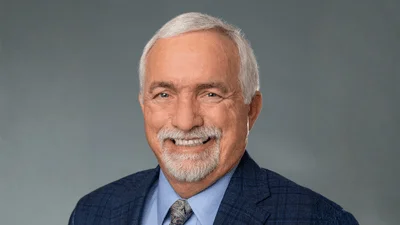U.S. Senator Martin Heinrich, the Ranking Member of the Senate Energy and Natural Resources Committee, highlighted the need to protect the National Historic Preservation Act (NHPA) during a committee hearing on October 29, 2025. Heinrich stressed that while reforms to permitting processes are important, progress is hindered by reductions in staff at agencies responsible for permit reviews.
Heinrich stated, "We can tweak and reform laws all we want, but fundamentally, until we have adequate staff at the agencies that process permits, we will continue to see frustratingly long permitting times." He argued that without sufficient personnel at federal land management agencies, improvements in permitting efficiency would not be possible.
In his remarks, Heinrich explained the basic principle of the NHPA: "The National Historic Preservation Act says something very simple: before we build something, we should know if there’s an important piece of our nation’s history or culture in the area that we’re planning to build. Sometimes damage can’t be avoided, and sometimes the project being built is important enough that damage to a historic resource is a trade-off that we choose to make. The NHPA allows for that. But, we should at least check, before we do irreversible damage to our national heritage."
Heinrich emphasized balancing energy infrastructure development with preservation efforts. "We can and must build the energy infrastructure our economy and our climate need, while also preserving our history and our heritage. We can do both," he said.
He cited Mount Taylor in New Mexico as an example of a site where cultural significance requires careful consideration before any development occurs. The mountain holds importance for multiple tribes in New Mexico and Arizona and is listed as a traditional cultural property on the State Register of Historic Places.
According to Heinrich, federal public land agencies have lost over 20 percent of their staff due to early retirements and buyouts. Additional layoffs are expected soon among land management agencies.
"It doesn’t matter what kind of permit you’re looking for – whether its oil and gas, or grazing, or road construction, or recreation: If the desk your permit application has landed on doesn’t have a human behind it, you’re not going to get your permit," Heinrich said.
He added that effective permitting reform cannot happen if existing laws are ignored by administration officials: "And as I have said a number of times now, we can’t do permitting reform if the Administration persists in ignoring the fundamental laws. That’s just as true for section 106 agreements as it is for oil and gas permits."
During his statement, Heinrich introduced Steven Concho from Acoma Pueblo as one of the witnesses testifying at the hearing. Concho serves as Tribal Historic Preservation Officer for Acoma Pueblo and represents tribal interests nationally through his role with preservation organizations.
The hearing aimed to examine ways to improve Section 106 consultation under NHPA while maintaining protections for culturally significant sites.








